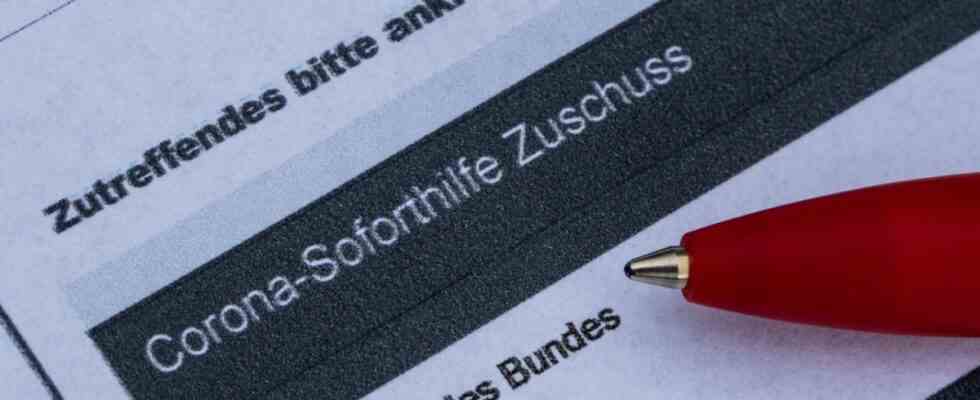The letter, which is currently ending up in many Bavarian mailboxes, raises question marks – and frustration. “Reminder of your obligation to review the Corona emergency aid you have received,” reads the subject. Entrepreneurs who registered between March and May 2020 for financial support due to pandemic-related losses should now use an online form to prove that they were entitled to the money. Otherwise they have to pay back part or all of the “overcompensation”.
Help, once promised, now given back – can that be? In any case, the excitement is great, confirm business representatives. When the Free State staggered into the first corona lockdown, the state government was still campaigning to apply diligently for its emergency aid. In the end, a total of 2.2 billion euros was paid out to 260,000 Bavarian companies, mostly financed by the federal government. This was not without trouble. The program was, of necessity, knitted with a hot needle, and solo self-employed people, among others, felt left out.
And now: material for discussion again. At an information event held by the Dehoga Hotel and Restaurant Association on Wednesday alone, 200 companies turned up, says Managing Director Thomas Geppert on the phone. “Actually, the child fell into the well two and a half years ago,” when the specifications for the program were made. Something similar can be heard from the Association of Self-employed: Many did not expect to have to pay back the aid. “If I didn’t send my people on short-time work back then, I’ll be punished now,” says spokesman Stefan Julinek. The high energy costs caused enough problems.
In essence, the same question as in 2020 is at stake: how to understand the “liquidity bottlenecks” that the emergency aid is intended to counteract. The bottleneck is calculated “from the acquisition-related material and financial expenses … minus the income” or, to put it simply: sales minus costs result in a deficit. However, the personnel costs were excluded, they could not be claimed. In addition, the grant should be repaid if the bottleneck is smaller than expected. The latter is quite common. For example, the flood aid set up in 2013 stipulated that those who had been injured had to pay back their immediate money if the insurance company stepped in. A kind of anti-fraud mechanism.
Even then, many entrepreneurs complained that the calculations were too vague. Some may have been overwhelmed when they applied for emergency aid, an examination by the tax consultant was not necessary. And: Other federal states were more flexible in terms of personnel costs, says Dehoga boss Geppert. These would be recognized in Baden-Württemberg and Saxony, for example. A number of companies would also have had to open, such as rest areas. Even mini-jobbers and trainees could not simply be sent on short-time work.
One hopes for longer repayment periods
The frustration increases that the Bavarian Ministry of Economic Affairs did not want to carry out any major follow-up checks in the past. Now it says from there: The federal government demands them. Random checks indicated a “significant number of emergency aid recipients who have retrospectively received too much aid”. Also because of the proper handling of tax funds, the ministry must point out the recipients of their obligation. The online procedure designed for this purpose was designed in such a way that as little effort as possible was incurred. “Only the original forecast has to be checked automatically and the result communicated.”
In view of the complexity of the whole thing, the restaurant association does not want to “bang on” politics. In return, one hopes for longer repayment periods, the deadline is currently June 30, 2023. “Well thought, badly done”, judges the association of the self-employed on the emergency aid. He advises entrepreneurs who have prepared their application for help on their own to turn on “testing third parties” – otherwise there may be a risk of subsidy fraud. Actually, says spokesman Julinek, the state was accommodating during the crisis. The fact that money is being reclaimed “is still felt to be unfair”.

